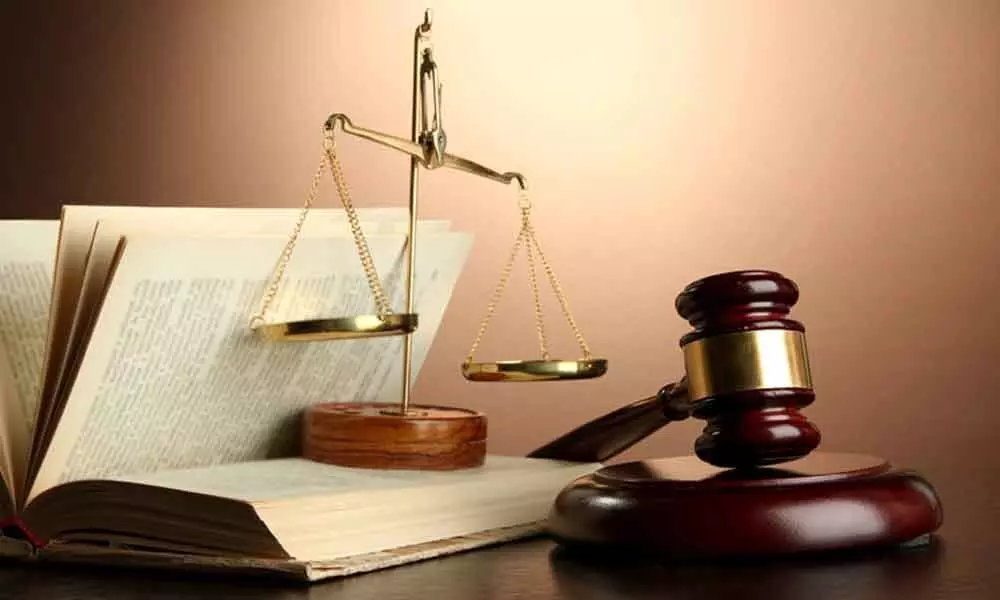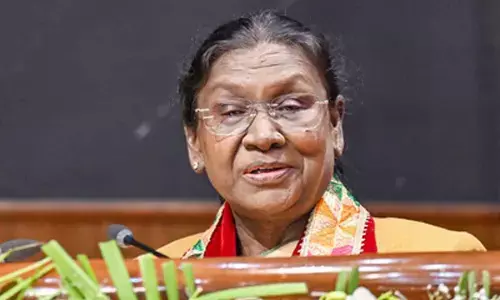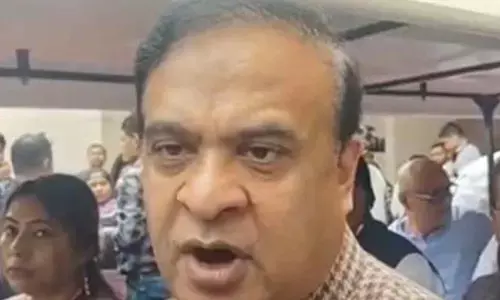Shed hypocrisy, make a people-friendly Constitution

Who takes pity on poor lawyers!
This year too, like every year, November 26 was ‘celebrated’ as the Constitution Day
This year too, like every year, November 26 was 'celebrated' as the Constitution Day. On this day, right from the President of India to the judges of moffusil courts read out the Preamble before select gatherings and thus, expressed their solidarity and obedience to the Constitution of India which is rightly considered as Gita, Quran or Bible of our 'democratic' set up. Again in order to remind the people, called 'citizens' several dozens of seminars or webinars were conducted by various stake-holders in democracy, particularly the judiciary and executive.
Indeed, this is a solemn occasion to ponder over the book called, Constitution of India which is the beacon light of our democracy. All laws, rules and procedures enacted by the parliament and state assemblies and councils must conform to the provisions of the Constitution. And if not, they could be challenged in the high court or the supreme court which has the power to declare them ultra vires or beyond the powers of the concerned legislative body. The Executive or Administration is bound to enforce the laws in letter and spirit.
True, the Greek word for democracy, demokratia is made of two words, viz. demos (people) and kratos (rule) meaning the rule of the people. That is why, the 16th President of America, Abraham Lincoln described the democracy as the government of the people, by the people and for the people. Any country wedded to the principles of democracy, therefore, has to abide by this time-tested definition. Further, as the people are born and ultimately dead and new generations replace them from time to time eternally, their hopes and aspirations also vary with the passage of time. In other words, the book containing the spirit of democracy ought to conform to the changing dreams, expectations, hopes and aspirations of the current generations ; hence it should be dynamic and not static.
The American Constitution has been amended for 27 times in last 231 years while we have amended our Constitution 103 times in last 70 years. However, it does not mean that there are shortcomings in our Constitution that have compelled us to amend it for so many times. It simply means that the successive governments of the day have been awake to the hopes and aspirations of the people and therefore, in order to comply with the people's wishes they deemed it proper to amend the Constitution.
Therefore, there is nothing to be ashamed of if the people (meaning, the majority, of course) want a change in the Constitution and it is affected by the parliament of the day. Further, according to this logic, there is nothing and cannot be anything like 'the basic structure' of the Constitution which cannot be changed. After all, the Constitution is just an instrument and no body, except the people themselves have power to sharpen, modify or discard it. The times change and so also the demands of the times. What was good, better or best yesterday may not be the same today. The thought process of the people, real masters of the country changes according to the socio, economic, political dynamics and the geo-political changes across the globe.
Therefore, it is high time our elected representatives change the numbers of their glasses and respond to the dreams, hopes and aspirations of the people by going to any extent to fulfill them. Today the parties in power have the necessary mandate of the people to amend the Constitution, and still if they fail to do so because of any reasons whatsoever, the present anf future generations of people will not excuse them.
HIGH COURT CAN GRANT BAIL: SC ON ART.226
Delivering the judgment in much-hyped case, Arnab Manohar Goswami Vs. State of Maharashtra & Ors (Crl.Appeal No.742 of 2020) the apex court has held that a high court should not foreclose itself from the ecercise of the power of granting bail when a citizen has been arbitrarily deprived of his personal liberty in an excess of State power.
"In an application under Article 226, the High Court must be circumspect in exercising its powers (to grant bail) on the basis of the facts of each case. " observed the bench comprising Justice D.Y Chandrachud and Justice Indira Banerjee. Noting that the Bombay High Court failed to discharge its adjudicatory function at two levels – first in declining to evaluate prima facie at the interim stage in a petition for quashing the FIR as to whether an arguable case has been made out, and secondly, in declining interim bail, as a consequence of its failure to render a prima facie opinion on the first.
However, the bench added that the high court must exercise its power of granting bail with caution and circumspection, cognizant of the fact that its jurisdiction is not a ready substitute for recourse to the remedy of bail available under Section 439 of the Cr.P.C.
A-G BATS FOR INTERMEDIATE COURTS OF APPEAL
K.K Venugopal, the Attorney General (A-G) has suggested setting up of four Courts of Appeal with 15 judges each in different directions so as to reduce the burden of the Supreme Court of India which has at present, the backlog of 75,000 cases.
Speaking at the Constitution Day function at the Supreme Court , the AG said : " The Supreme Court is the apex court of the country and it should be dealing with only matters of national and constitutional importance. However, at present, we see the Supreme Court hearing matrimonial, rent control, landlord and tenant disputes, bails, matters of land acquisition etc. If the Courts of Appeals manned by the judges with equal caliber as the judges of the Supreme Court are established, then the Supreme Court will be left with only about 2,000-3,000 cases which can be handled by it easily, he added.
The idea is not new. It also sounds good, but it is not that easy to materialise. Firstly, the Constitution will have to be amended. It is a lengthy and time-consuming process, but with the co-operation of all political parties in the Parliament it can be done. Still the major problem the proposal would face will be the conflict of interest. The Delhi and in its proximity-based advocates are sure to resist the proposal tooth and nail as if it gets materialized, their bread and butter would be impacted. On the other hand, advocates from other places, particularly from the south and east India will have a reason to celebrate because their practice will get a philip. However, on the face of it, the AG's proposal deserves to be welcomed.








